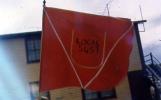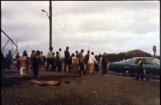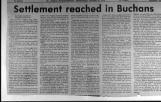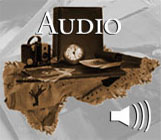1
In early 1973, the United Steel Workers of America, the Local 5457 and the American Smelting and Refining Company (ASARCO) met to formulate a new agreement. An agreement was not concluded but a memorandum of understanding was reached. This offer included a 6.7% wage increase over a two year period. This offer was rejected by approximately 60% of the union membership and a strike took place on March 15, 1973. The Union was fully prepared and strike committees were set up to make picket schedules and strike pay applications. Women also became involved in the strike, making lunches, coffee, tea, marching with their husbands and offering moral support. The solidarity of the men and women, along with a degree of militancy, showed the company that this time the union would be more aggressive. The strike also fostered a series of very militant songs. Through poetic formulation of significant issues, these songs inspired solidarity within the community and labour force and bolstered the workers' determination to achieve major concessions, which they ultimately attained from an often intransigent management.2
The Local 5457's Union flag was a symbol of solidarity and committment to the local union.1973
Buchans, Newfoundland, Canada

3
On April 9, all non-union personnel were stopped from crossing the picket line. The union started marching to the picket line twice a day and continued throughout the strike. These marches were held in an atmosphere of fellowship and solidarity and conveyed the message that the workers were unified in their strike against ASARCO.4
Strikes sometimes became violent and strikers would overturn non union workers' cars.1973
Buchans, Newfoundland, Canada

5
On April 24, an Assistant Geologist, Kenneth Larson, took actions that turned the strike violent. Larson drove his car through the picket line, hitting two strikers, Tom Ricketts and Jim Peddle. It is said he carried them about 40 feet on the bonnet of his car. He parked his car as if nothing had happened and walked into the main office. Within minutes, a large crowd of men rushed to the picket line, crossed the line and turned his car over in the parking lot.6
During the 1971 and 1973 strikes marches with union members and their families were common.1973
Buchans, Newfoundland, Canada

7
On April 30, while the strikers were marching on the townsite, it was reported that the Mounties had crossed the picket line. The strikers then headed for the picket line and overturned every company vehicle in sight, slashed tires and Larson's car and a caboose were set on fire. They also broke into the main office and ransacked it from top to bottom.8
Strikers manning the picket line at the entrance of the ASARCO plant during the 1973 strike.1973
Buchans, Newfoundland, Canada

9
Many union members believed that just facing the staff was insufficient. They considered it important to develop the impact of the marching ritual through the use of songs. Angus Lane, a unionist and well known local poet, helped fulfill this need. When Angus submitted the song, "All Because of ASARCO" shortly after the strike commenced, some of the union members with musical ability developed an instrumental and vocal arrangement for the text and recorded a cassette which they then broadcasted throught he roof speaker of a car that accompanied the strikers. The blaring speaker of Vice President Ivan Hodder's car, "Yellow Peril," as the car was fondly nicknamed functioned as a musical background for the marchers who soon learned the lyrics and heartiliy vocalized their protests in song.As significant events occurred, Angus would sit at his kitchen table and purposefully create serious parodies to popular Newfoundland melodies which would later be learned and sung by the marchers. After the strike had ended, these union songs were published in a booklet entitled "Come Hell or High Water" and also recorded on an album by Peter Narvaez of Memorial University.
10
Newspaper clipping announcing the end of the 1973 strike in Buchans.1973
Buchans, Newfoundland, Canada

11
In September, ASARCO submitted a new proposal offering a three year contract instead of a two year deal. The union accepted this agreement and on October 3 it was accepted in a vote by the union members. A victory parade was held on October 3 and work resumed the following day. There were only 250 union members still in Buchans at the end of the strike. Two hundred men were employed elsewhere and 100 others had quit and moved out of Buchans. The Saturday after the agreement was reached a dance was held where all union songs were sung with a sense of relief and satisfaction.13
The majority of strike songs were published in a booklet, "Come Hell or High Water." And in 1975 and 1976, local Buchans musicians recorded these songs and an album was made. Angus Lane wrote the song "All Because of ASARCO" during the early part of the strike. The inspiration came when the Union pulled essential services, thus cutting heat to the company plant, staff homes, the school and the hospital. However, the Union gave the Government sufficient notice before making this move, in order to give them ample time to install alternate heating to the schools and hosptial.ALL BECAUSE OF ASARCO
(Sung to the tune of "Thank God We're Surrounded By Water)
5457 is now out on Strike
We seek from ASARCO what we deem is right
'Till hell freezes over, we'll continue to fight
We wont' beg or plead from ASARCO
CHORUS:
Our plea, our plea is for you and me
To demand what we want from this company
No one here will go down on their knees
To bed or to plead from ASARCO
We cut off the heat to the plant and the staff
The schools had to suffer on our behalf
The hospital too was caught in the draft
All because of ASARCO
CHORUS
The company makes millions on concentrate tons
While miners end up with lead on their lungs
Mining makes old men out of our young sons
Producing ore for ASARCO
CHORUS
A decent wage is all that we need
A few extra dollars our families to feed
A reasonable employer to our cause would give heed
But we have to deal with ASARCO
CHORUS
The welfare man he came here today
He asked us to show him our previous pay
When he added it up he had this to say
There's nothing here try ASARCO
CHORUS
Stick to your guns boys and never relent
Don't go back for a few paltry cents
To boost the wages of those New York gents
Who get-- damn well paid by ASARCO.
CHORUS
